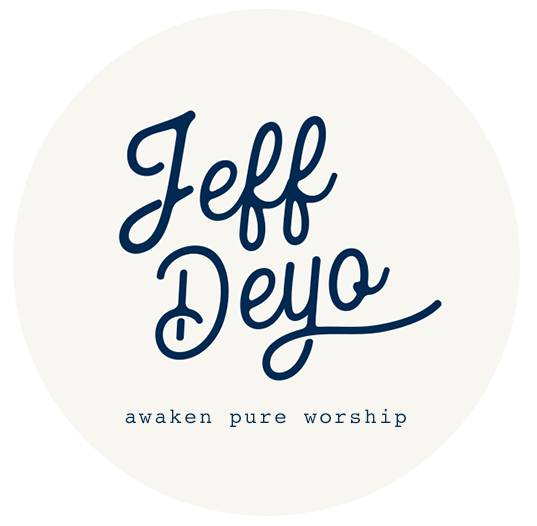There are many spokes in the wheel that make the world of music go ‘round—like artists, producers, players, teachers, radio stations, studios, YouTube, Spotify, record companies, managers, and booking agencies, to name a few—but there is only one true hub at the center. The song and the songwriter.
Think about it. Everyone who works in the area of music—from sacred to secular—does so because there is a powerful song to sing. A talented producer is of little use if he does not have a great song to which he can lend his arranging skills. A gifted singer will certainly not fill stadiums singing the ABC’s, but needs a dynamic song on which to hang her mellifluous vocals. The same goes for record companies, radio stations, DJ’s, and managers—without a song, none of these folks would have a popular artist to support, and therefore would not have a job.
The song and the songwriter are of central importance in music, and this obliges me to share a few helpful hints with those who may aspire to write the songs to inspire a generation.
1. Writers need to write. This may seem obvious, but I have run into many a would be writer who says he want to be a great songwriter but who rarely writes. I suppose it’s the same as with any skill. Many would love to hoop it up in the NBA, but few are willing to do the work it takes to do so. Yes, believe it or not, songwriting must be practiced, because it’s a skill that must be developed. In basketball, I’ve heard of star players shooting free throws as long as it takes to make 100 shots. In a row. Every day. As with any other skill, songwriters come out of the shoot with varying levels of skill, but those who want to write great songs must write, write, and write some more.
2. Songwriters keep their antenna up. Good writers are writing all the time. Unlike non-writers, they are always looking for compelling ideas to share—maybe from a sermon, from a scenic view, or simply from a conversation happening at a table nearby. They pay attention to things other people miss. Why? Because they are watching. Listening. And they always have a notepad or songwriting app handy to capture the inspirational musical or lyrical suddenlies of life. Whether from a billboard or a line in another song, great writers find ways to glean inspiration for fresh songs from everyday encounters.
3. The best songs cause people to say “me too.” Ironically, the best songs rarely attempt to tell us something we’ve never imagined, but strive to bring us all together around a topic we can all relate to. That’s why pop music can be so gripping for so many—not because it says something we’ve never heard before, but because it touches our hearts with things we all deal with on a daily basis—like disappointment, fear, sunsets, traffic, loss, the unknown, and of course, love and relationships. The best way to captivate people’s heart with a song is to rally them together over the joys and struggles we all face.
4. Great songwriters use a fresh approach. It’s very easy to get stuck in a box. Whether from writers’ block or using the same lyrical approach for every song, we must find ways to keep things new. There are many ways to do this, including writing on an instrument you are less familiar with, starting with a lyric or title if you normally start with chords and a melody, or branching out to collaborate with other writers. At North Central U, we do something we call “Creative Friday’s,” inspired by our friends at National Community Church. Each Friday we gather for 2 hours with anyone who wants to write songs across our NCU campus. This approach helps us help each other continue to bring fresh songs to the table as we build off each other’s ideas!
5. Songwriters are always listening judiciously. One way we become better at anything is by learning from others. One obvious way is to do this is to listen to a lot of music. Whether on the radio or Google Play or with friends, we must constantly consume and “evaluate” other people’s songs. Or course, in order to remain sane, I encourage you to learn to switch on and off your “critic’s” ear. But simply be aware that we should always be learning something from other songs. Train yourself to get beyond casual listening to ask questions like “why do I like this song?” or “what makes this hook so infectious?” Of course, there are also things we can learn about how NOT to write. Is there something that bugs you about a particular song? Don’t turn it off. Ask yourself why.
6. Great writers educate themselves. In the same way that listening to songs from other writers helps you learn, we should be encouraged to take every opportunity to grow as a songwriter. Reading songwriting books like God Songs from Paul Baloche or The Art of Songwriting from Casey Kelly or Writing Better Lyrics from Pat Pattison can give you a boost. Of course, there is always the YouTube video approach as well. I would even consider challenging you to earn a degree in songwriting. We don’t have a songwriting major at NCU, but we do have a couple majors that emphasize songwriting, including our Worship Leading and Recording Artist degrees. Here, part of our training is focused on developing young songwriters to become professionals. You would also have opportunities to record your songs in our on-campus recording studio, McPherson Studios (as I did with my Moving Mountains CD), as well as to contribute worship songs to our chapels and ultimately to our NCU Worship Live recordings.
If it is true that songs make the world of music go ‘round, there is certainly ample motivation to grow as a songwriter in order to seize the opportunity to aid other singers, producers, DJs, and music business folks, or even yourself, in encouraging and challenging the vast sea of listeners out there who are captured by today’s popular songs.
**Please feel free to share comments or thoughts on my little blog in the comment section below. I’d love to hear from you to keep the conversation going. And make sure you sign up with your email on the homepage to receive notices from me each Tuesday when I post my newest blog. Thanks!

